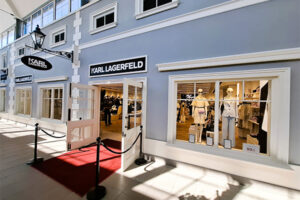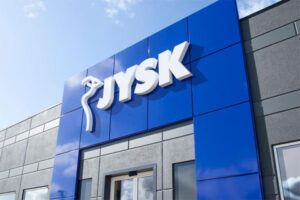BY GERGELY BODÓ
The know-how accumulated in European retail markets is undoubtedly vast, detailed, and very thorough when compared to the experience of emerging markets in North Africa. It is also outdated if we look at it from a future perspective and compare European ways with current trends in Asia and the Middle East. It is therefore interesting to see what is happening in North Africa.
Political and economic stability is increasing in some, but by no means all countries, which is resulting in a return of confidence in the real estate market. This has led ever more European companies to look towards the North African region, especially Egypt, Morocco, Tunisia, Libya, and Algeria, for the opportunity to work on retail projects like development, retail leasing, and property management consulting for local developers. These companies ideally have local partners who provide equity, local knowledge, and connections when it comes to securing land, permits, construction tenders, and, above all, security for the development as well as personal safety. In exchange, a European company usually promises to take care of developing or operating the asset professionally, either focusing on doing things by the book or main-taining and increasing asset value.
PROJECTS BACK UNDER CONSTRUCTION
European retail know-how is based on years of relatively undisturbed evolution of knowledge derived from a long learning curve. Yet that knowledge is now facing its greatest challenge: the change of paradigm in the industry. The question is whether this sophisticated know-how, based on the repetition of thousands of projects and asset management practices in Europe, will prove to be suitable and lasting in the countries of North Africa. Why?
First of all, countries in this region, despite their proximity to each other, vary greatly and cannot be treated as a homogeneous block. It is said that Morocco, Tunisia, Libya, and Algeria are mostly influenced by Europe, while Egypt rather follows the Middle East. The former countries are conducting increasing volumes of business with Asia and the Middle East, proving that North Africa is more and more inspired by the Middle East. The approach to these countries will have to vary accordingly.
Secondly, despite the Arab Spring, many countries are showing more stability than one might think and projects that were previously put on hold are now back under construction. There is not enough knowledge on how to avoid the situation that can be observed in China where, mainly in first- and second-tier cities, there is already an over-supply of shopping centers, a lot of them built without proper consideration in terms of concept, leasibility, and property management aspects, causing a growing pool of distressed assets.
THE FORMULA
This is the niche where European know-how can prove that experience, combined with the proper tailor-made approach country by country, can result in well thought-out projects that are sustainable in the long run. The formula today is as follows: a) Take a high net-worth individual from any of the North African countries, with European or Middle Eastern business ties, and connect him or her with a world-renowned architect who designs the required iconic building. b) Take a professional company that specializes in development consultancy, including concept design, leasing and marketing strategy, tenant delivery, and property management. c) Make sure that an independent and reputable consultancy company prepares a thorough market analysis. d) Team up with the Middle Eastern retail groups that are indispensable in filling up shopping centers with their brands and their extensive experience in retailing in the MENA region. e) Hire some of the few professional local experts who can help the project through local challenges. The education of such personnel will bring a valuable return when assets must be managed according to industry standards.
That is exactly where the importance of European know-how kicks in: in the fields of leasing and asset, property, and facility management. While understanding the local market specifics is fundamental in positioning and marketing the project, strict financial policies and procedures and leasing and tenant management practices have to be introduced in order to maintain payment discipline, while a proper facility management system must be introduced as well. In October 2014, TriGranit Management Corporation (TGM), together with DI Leasing and MultiCapital, signed a Joint Venture Agreement whereby TGM will work jointly with DI on leasing mandates across North Africa. In addition, this partnership will further enhance their clients’ retail leasing and asset management experience across the Middle East and North Africa regions.
It also has to be remarked that transferring European retail market know-how in combination with good local knowledge, to the North African region has a much greater chance of success than it would in mainland China, for example, due to significant difficulties such a project might face there due to language barriers and a different pattern of thinking about retail developments. North Africa, historically influenced by Europe and the Middle East, and which is now aiming to lead the retail industry globally, welcomed and embraced European experience and then took it to a higher and more sophisticated level. The question is whether and to what extent European know-how cooked according to a Middle Eastern recipe will work in North African countries in the coming years.
ABOUT TRIGRANIT
TriGranit, based in Central Europe, is one of the largest fully-integrated regional real estate investment, development, and management companies in the region. Boasting a 20-year track record of excellence, TriGranit has developed an award-winning portfolio valued at €2.5 billion and has a pipeline of over €4 billion in major mixed-use developments. With a more than €3 billion portfolio of assets under management, TriGranit welcomes over 60 million visitors to its centers every year and supports the success of more than 1,500 international tenants. TriGranit operates in 14 CEE countries in the Caucasus, Far and Middle East, and China, providing a wide range of real estate services to third parties.





